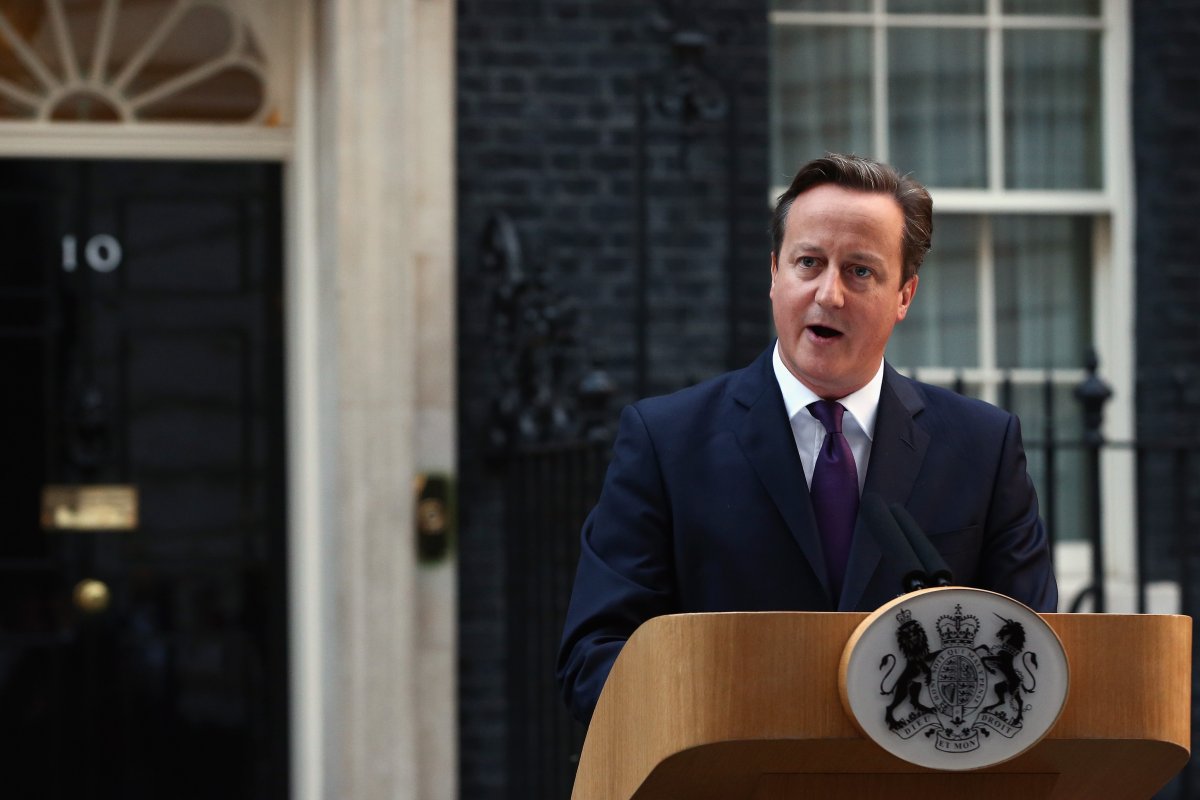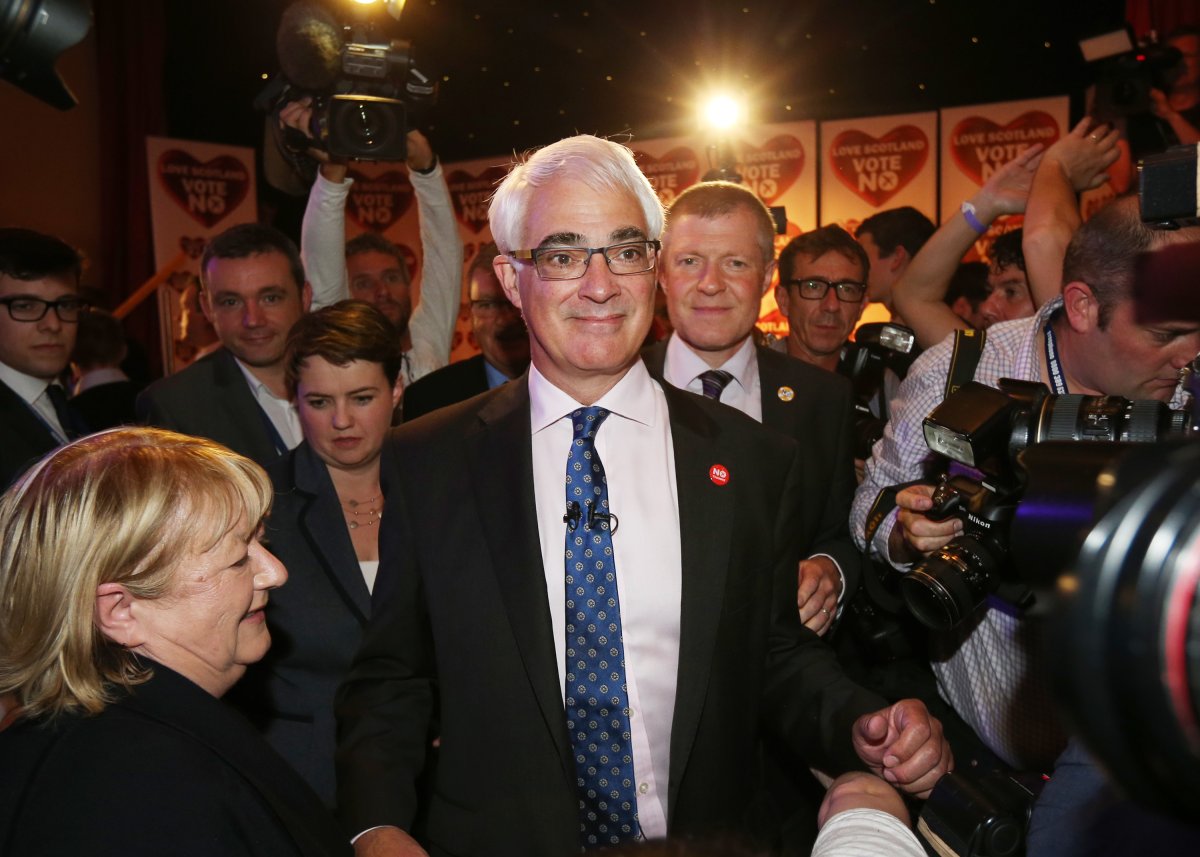WATCH: Scots were deeply divided, but in the end voters rejected the idea of braking away from the United Kingdom. Either way, Britain’s political establishment has been shaken up. Stuart Greer reports from Edinburgh.

EDINBURGH, Scotland – The United Kingdom will stay united. Voters in Scotland resoundingly rejected independence in a historic referendum that shook the country to its core.
But “No” to a break-up doesn’t mean a return to the status quo. The referendum led to promises of further powers for each of the four nations in the United Kingdom – a pledge that will change the country forever.
READ MORE: Scotland referendum – Who won? Who lost?
Hours after the result of the vote was declared, Scotland’s pro-independence leader Alex Salmond said he is resigning as first minister and leader of his Scottish National Party.
Salmond, 59, said he is proud of the campaign and the record turnout in Thursday’s referendum.
READ MORE: Scottish First Minister Alex Salmond steps down
“For Scotland the campaign is not over and the dream will never die,” he said in an emotional statement.
Salmond’s impassioned plea to launch a new nation – a cause he championed for some two decades – fell short, with Scots choosing instead the security of remaining in union with England, Wales and Northern Ireland.
- Carbon rebate labelling in bank deposits fuelling confusion, minister says
- Ontario premier calls cost of gas ‘absolutely disgusting,’ raises price-gouging concerns
- Conservatives ask interference inquiry judge to rule elections were flawed
- Former B.C. minister Mike de Jong seeks federal Conservative nomination
READ MORE: Canada welcomes Scottish result, says Baird
The referendum’s result prevented a rupture of a 307-year union with England, bringing a huge sigh of relief to Britain’s economic and political establishment.
In the referendum, 55 percent were against independence to 45 percent in favor. There was an unprecedented turnout of just under 85 percent.
FINAL NUMBERS
- NO: 2,001,926 (54.7%)
- YES: 1,617,989 (44.7%)
- Turnout 84.59%
A visibly relieved British Prime Minister David Cameron promised to live up to earlier promises to give Scotland new powers on taxes, spending and welfare. Cameron told reporters outside his Downing Street office that the new plans will be agreed upon by November, with draft legislation by January.
Even as he announced his resignation, Salmond was upbeat about Scotland’s future.
“We now have the opportunity to hold Westminster’s feet to the fire on the vow that they have made to devolve further meaningful power to Scotland,” he said. “This places Scotland in a very strong position.”
Salmond has been a key figure in Scottish politics, leading his party for 20 years and campaigning passionately for Scottish independence throughout his career. In 2007, he predicted the goal would be won within a decade – to the general disbelief even from supporters.
But it wasn’t to be.
“We have chosen unity over division,” Alistair Darling, head of the No campaign, said earlier in Glasgow. “Today is a momentous day for Scotland and the United Kingdom as a whole.”
The vote riveted the world. In Washington, President Barack Obama welcomed Scotland’s choice, and congratulated Scots for their “full and energetic exercise of democracy.”
“Harry Potter” author J.K. Rowling, who had given 1 million pounds ($1.6 million) to the No campaign, said she followed the returns overnight.
PHOTO GALLERY: Tears, cheers as Scotland votes ‘no’ to referendum
“Been up all night watching Scotland make history,” she tweeted. “A huge turnout, a peaceful democratic process: we should be proud.”
The No campaign won the capital city, Edinburgh, by a margin of 61 percent to 38 percent and triumphed by 59 percent to 41 percent in Aberdeen, the country’s oil center. The Yes campaign won Glasgow, Scotland’s biggest city, but it was not enough.
As dawn broke to lead-gray skies over Glasgow, the dream of independence that had seemed so tantalizingly close evaporated in the soft drizzle.
George Square, the rallying point for thousands of Yes supporters in the final days of the campaign, was littered with placards and debris of a campaign in which many had invested more than two years of their lives.
“I had never voted before or got involved with politics in any way but this time I thought my vote would count for something,” said truck driver Calum Noble, 25, as his voice cracked with emotion. “I wanted a better country but it’s all been for nothing. I don’t believe we will get any of the things the London politicians promised.”
READ MORE: Cameron pledges to honour promises to Scotland
But he also said change was coming to other parts of the country amid the watershed vote.
“Just as the people of Scotland will have more power over their affairs, so it follows that the people of England, Wales and Northern Ireland must have a bigger say over theirs,” Cameron said. “The rights of these voters need to be respected, preserved and enhanced as well.”
The No campaign won the capital city, Edinburgh, by a margin of 61 per cent to 38 per cent and triumphed by 59 per cent to 41 per cent in Aberdeen, the country’s oil centre. The Yes campaign won Glasgow, Scotland’s biggest city, but it was not enough.
As dawn broke to lead-grey skies over Scotland’s largest city, the dream of independence that had seemed so tantalizingly close evaporated in the soft drizzle.
Live updates on the Scottish independence referendum
George Square, the rallying point for thousands of Yes supporters in the final days of the campaign, was littered with placards and debris of a campaign in which many had invested more than two years of their lives.
“I had never voted before or got involved with politics in any way but this time I thought my vote would count for something,” said truck driver Calum Noble, 25, as his voice cracked with emotion. “I wanted a better country but it’s all been for nothing. I don’t believe we will get any of the things the London politicians promised.”
But popular opinion on a leafy residential street in Edinburgh’s west end told a different tale.
READ MORE: Businesses, investors breathe sigh of relief
“Just because I’m not out in the street in a kilt screaming how Scottish I am, that doesn’t mean I’m not a proud Scot. I am. And a proud Brit. That’s the point the Yes side doesn’t respect,” said Ger Robertson, 47, who chose instead to celebrate Scotland’s verdict in his living room with a dram of his favorite single-malt whisky.
Salmond had argued that Scots could go it alone because of its extensive oil reserves and high levels of ingenuity and education. He said Scotland would flourish alone, free of interference from any London-based government.
Many saw it as a “heads versus hearts” campaign, with cautious older Scots concluding that independence would be too risky financially, while younger ones were enamored with the idea of building their own country.
The result saved Cameron from a historic defeat and also helped opposition chief Ed Miliband by keeping his many Labour Party lawmakers in Scotland in place. Labour would have found it much harder to win a national election in 2015 without that support from Scotland.
Former Prime Minister Gordon Brown, a Scot, returned to prominence with a dramatic barnstorming campaign in support of the union in the final days before the referendum vote. Brown argued passionately that Scots could be devoted to Scotland but still proud of their place in the U.K., rejecting the argument that independence was the patriotic choice.
For his part, Cameron – aware that his Conservative Party is widely loathed in Scotland – begged voters not to use a vote for independence as a way to bash the Tories.
The vote against independence keeps the United Kingdom from losing a substantial part of its territory and oil reserves and prevents it from having to find a new base for its nuclear arsenal, now housed in Scotland. It had also faced a possible loss of influence within international institutions including the 28-nation European Union, NATO and the United Nations.
PHOTOS: Scenes from the Scottish referendum
The decision also means Britain can avoid a prolonged period of financial insecurity that had been predicted by some if Scotland broke away.
Salmond said he would serve until a new leader is elected in November, and that afterward he plans to continue to serve as a lawmaker in the Scottish Parliament.
“We lost the referendum vote, but can still carry the political initiative,” he said. “More importantly Scotland can still emerge as the real winner.”






















Comments